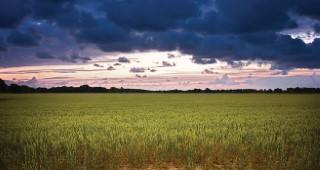‘Land grab’: an environmental issue?
Explore the complex connections between environmental, economic, and political issues in the course ‘Land grab’: an environmental issue. Gain a deeper understanding of the challenges of land acquisition, the importance of interdisciplinary approaches, and the relationship between economic uncertainty and environmental change. Discover how analytical concepts can help make sense of complex environmental issues. Enrich your learning experience with interactive activities and audio-visual material.
This free course, ‘Land grab’: an environmental issue?, explores how environmental problems are entangled with economic and political issues and offers tools for making sense of the complexity that results. The case of land grab illustrates how everyday issues such as food prices are caught up in connections that link different places, different people and their livelihoods across the globe
Connections that are brought to life in the course through rich audio-visual material and interactive activities.
Course learning outcomes
After studying this course, you should be able to:
Understand why land acquisition can be considered an environmental issue and the particular environmental challenges that it presents
Recognise the need for an interdisciplinary approach to interpret and explain environmental issues
Discuss the relationship between economic uncertainty and environmental change
Appreciate the work that analytical concepts can do to make sense of complex environmental issues such as the issues of rights to land and food prices.
User Reviews
Be the first to review “‘Land grab’: an environmental issue?”
You must be logged in to post a review.







There are no reviews yet.